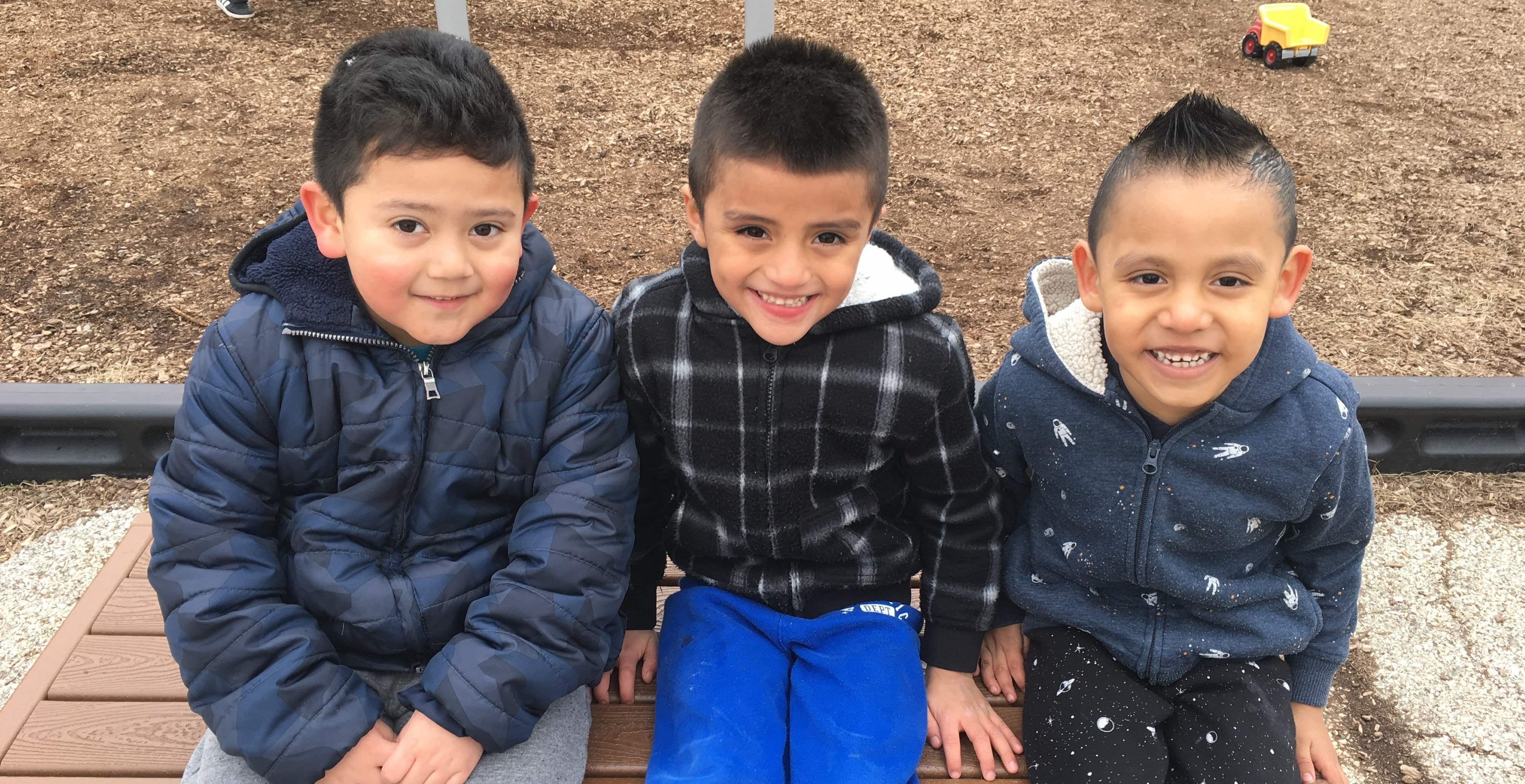Testimonials

Alesia Cameron
“Through play-based learning, I realized that one of my students was more competent than I had previously thought. When I engaged with him about things that were genuinely motivating to him—in this case what he liked to do with his family—he was able to demonstrate his emerging story-writing skills at a much higher level. I didn’t think of him as my lowest-achieving student anymore, and this made a huge difference. I understood him in a completely new way, which changed how I taught and impacted him as a learner. I’m an experienced teacher, yet play-based learning is teaching me to see my students in brand new ways.”
—Alesia Cameron, D187 Kindergarten Teacher
“A través del aprendizaje a base de juegos, me di cuenta de que uno de mis alumnos era más competente de lo que había pensado anteriormente. Cuando participé con él en las cosas que lo motivan genuinamente—en este caso lo que le gusta hacer con su familia—él fue capaz de demostrar sus habilidades emergentes para escribir cuentos a un nivel mucho más alto. Ya no pensaba que él era mi estudiante de menor rendimiento y esto hizo una gran diferencia. Lo entendí de una manera completamente nueva, lo cual cambió mi forma de enseñar y lo impactó como aprendiz. Yo soy una maestra con experiencia, sin embargo el aprendizaje a base de juegos me está enseñando a mi a ver a mis alumnos desde nuevas perspectivas.”
—Alesia Cameron, Maestra de Kindergarten de D187
Sandy Young
“During reflections with teachers, a theme emerged. Many teachers talked about an unanticipated outcome of play-based learning. They found that their students, because of daily time to interact with their peers in a well-planned and supportive environment, had become more independent problem solvers. Children demonstrated improved language skills. They showed increased flexibility in conflict resolution. They assumed more leadership roles and took more responsibility for their own belongings and the classroom learning environment. When I asked teachers why this matters, one offered this: that learning academic skills is important, but learning social/emotional skills are what her students really need from her in Kindergarten.”
—Sandy Young, D187 Classroom Coach/Consultant on Play-Based Learning
“Durante las reflexiones con los maestros, surgió un tema. Muchos maestros platicaron sobre un resultado inesperado del aprendizaje a base de juegos. Ellos encontraron que sus alumnos, debido al tiempo diario de interacción con sus compañeros en un entorno bien planificado y de apoyo, se habían convertido en solucionadores de problemas más independientes. Los niños demostraron aptitudes lingüísticas mejoradas. Ellos mostraron un aumento en la flexibilidad de la resolución de conflictos. Ellos asumieron más roles de liderazgo y tomaron más responsabilidad por su propias pertenencias y el entorno de aprendizaje del aula. Cuando le pregunté a los maestros por qué esto es importante, una de ellos ofreció lo siguiente: aprender las habilidades académicas es importante, pero aprender habilidades socioemocionales es lo que sus estudiantes necesitan de ella en el Kindergarten.”
—Sandy Young, Entrenadora / Consultora del Aula del Aprendizaje a Base de Juegos de D187
Hallie Zimbler
“I transitioned from Kindergarten to second grade, and I brought with me all the learnings from our play-based work. I also brought play itself with me! Children in North Chicago—and children everywhere—need teachers who focus on all of their learning. Play is how students learn about being a friend and taking responsibility for themselves. Just because they’re in second grade doesn’t mean they don’t need time for that kind of learning!”
—Hallie Zimbler, D187 2nd Grade Teacher
“Hice la transición del Kindergarten al segundo grado y traje conmigo todo el aprendizaje de nuestro trabajo a base de juegos. ¡También traje conmigo el juego! Los niños en North Chicago—y los niños en todas partes—necesitan maestros que se enfocan en todo su aprendizaje. Jugando es como los niños aprenden acerca de ser amigos y a tomar responsabilidad de sí mismos. ¡Sólo porque están en el segundo grado no significa que no necesitan tiempo para ese tipo de aprendizaje!”
—Hallie Zimbler, Maestra de 2do Grado de D187
